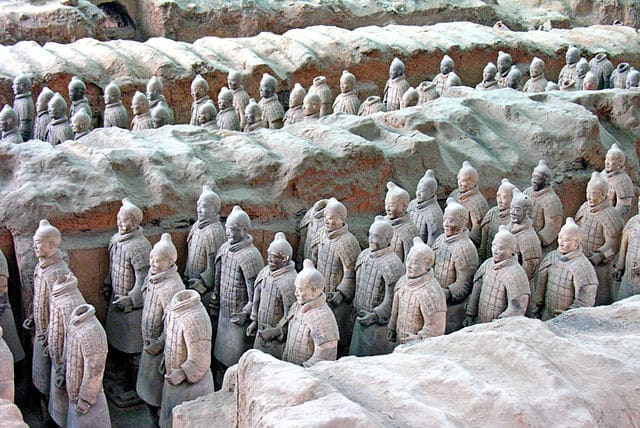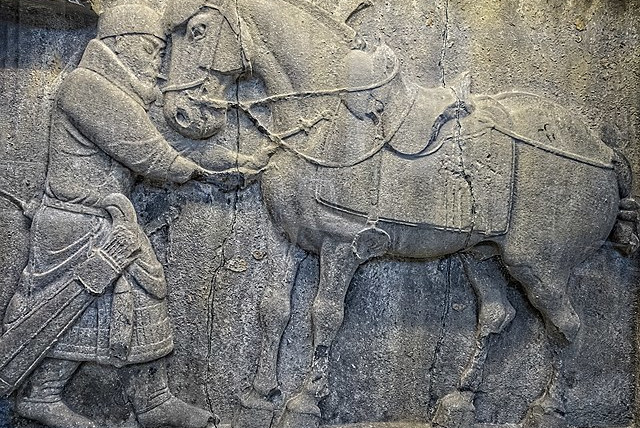Discovery of emperor's tomb proves ancient power struggle in China

Artifacts buried underground were found, these included terra-cotta figurines, for which the region is well known.
A tomb from 1,400 years ago uncovered near the city of Xianyang in Shaanxi province in China has proven that a power struggle occurred in the court of the Chinese emperor which was until now only mentioned in written accounts according to a Chinese report on the findings.
The site is roughly 560 miles from Beijing and houses the tomb of Emporer Xiaomin, known as Yuwen Jue, the founder of China’s Northern Zhou dynasty.
Archeologists excavating the site found the inscription “Duke of Lueyang”, proving that at the time of his death, he was buried as a Duke and not an Emperor and he was later posthumously crowned.
The area is known for its high number of important tombs nearby.
The tomb is one room, roughly 33 feet deep. Unfortunately, excavators found that the tomb had been ransacked at some, presumably ancient, point in time. However, 146 artifacts buried underground were found. These included terra-cotta figurines, for which the region is well known.
An ancient power struggle
The tomb is from a period between 420 to 589 CE, when China was split into Northern and Southern dynasties and which saw many wars and internal power struggles within the royal houses.
Jue was given the throne by his cousin, Yuwen Hu, a local warlord. He himself was the son of a deceased warlord.
However, Jue eventually rebelled and was deposed and executed by Hu and was replaced by a brother of JUe.
The brother though, poisoned Hu and declared Jue to have been the first emperor of the Northern Dynasty, a story which had only been found in written records until the startling discovery of the tomb of this shortlived emperor.
Jerusalem Post Store
`; document.getElementById("linkPremium").innerHTML = cont; var divWithLink = document.getElementById("premium-link"); if (divWithLink !== null && divWithLink !== 'undefined') { divWithLink.style.border = "solid 1px #cb0f3e"; divWithLink.style.textAlign = "center"; divWithLink.style.marginBottom = "15px"; divWithLink.style.marginTop = "15px"; divWithLink.style.width = "100%"; divWithLink.style.backgroundColor = "#122952"; divWithLink.style.color = "#ffffff"; divWithLink.style.lineHeight = "1.5"; } } (function (v, i) { });

